ZHAW-Impact University Magazine
Our free university magazine ZHAW Impact with features on current research projects, degree courses and continuing education opportunities appears four times a year.
About ZHAW-Impact
ZHAW-Impact provides information on current research projects and on degree and continuing education programmes. Our university magazine is free of charge and you can subscribe to it in print or have access to our Web-Edition. It is published quarterly with a circulation of 27'000 copies. Each issue focuses on one key topic. Portraits of researchers, lecturers, students and alumni, interviews, articles, videos and photos give an insight into the world of science and business and into the everyday life of our students.
The target audience is ZHAW graduates, partners and potential partners, representatives from companies and politics, from the media and from health and social institutions – and all those interested in science and academia.
Click here for selected articles from the current issue
Complete magazine as PDF and more (German only)
PDF archive of previous issues (German only)
Editorial staff
Sara Blaser (Editor-in-Chief)
Andrea Hopmann (Head of Corporate Communications)
Alexandra Wolff (Head Product)
Selected articles
Fighting against unlawful restraint
Patrick Krauskopf is one of the most knowledgeable experts on competition law. He is Head of the Center for Competition and Commercial Law at the ZHAW and perfectly combines practice and theory in his professional life.
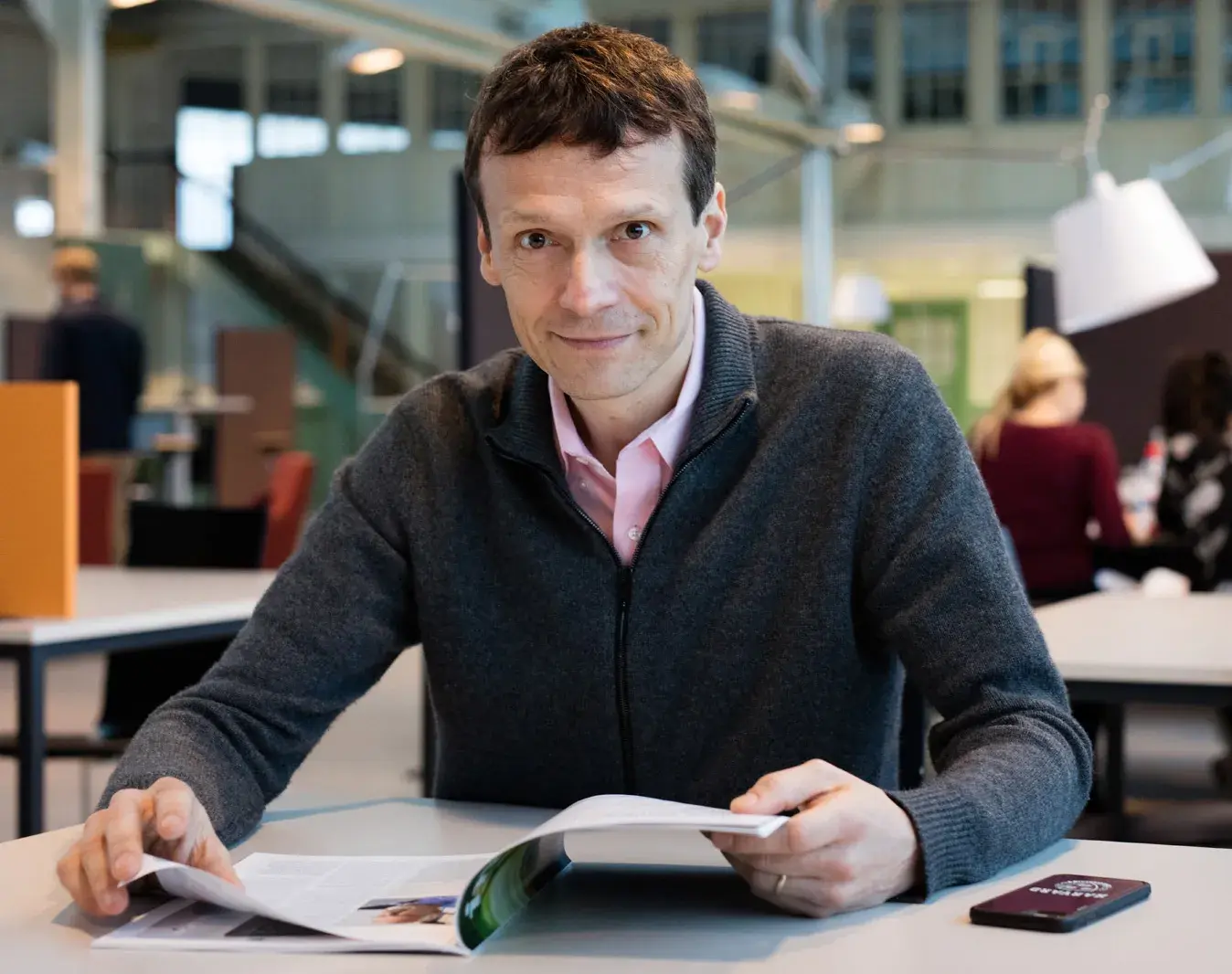
He doesn’t strike you as a typical lawyer. His smile is too friendly. He seems to lack the usual cool reserve that is often found in lawyers. Patrick Krauskopf likes to talk; he explains things in precisely formulated phrases and is ready to clarify. He became widely known as a dynamic and communicative Vice President of the Competition Commission (COMCO), which he belonged to for almost ten years. The last successful revision of the Swiss Cartel Act of 2003, in which fines for unlawful restraints of competition became possible, will always be inseparably linked with his name.
«The ZHAW opened the door to Asia for me»
After his Master’s degree at the ZHAW School of Engineering, Matthias Bleibler worked in Dongguan, China, for two years. This experience made the world smaller for him.
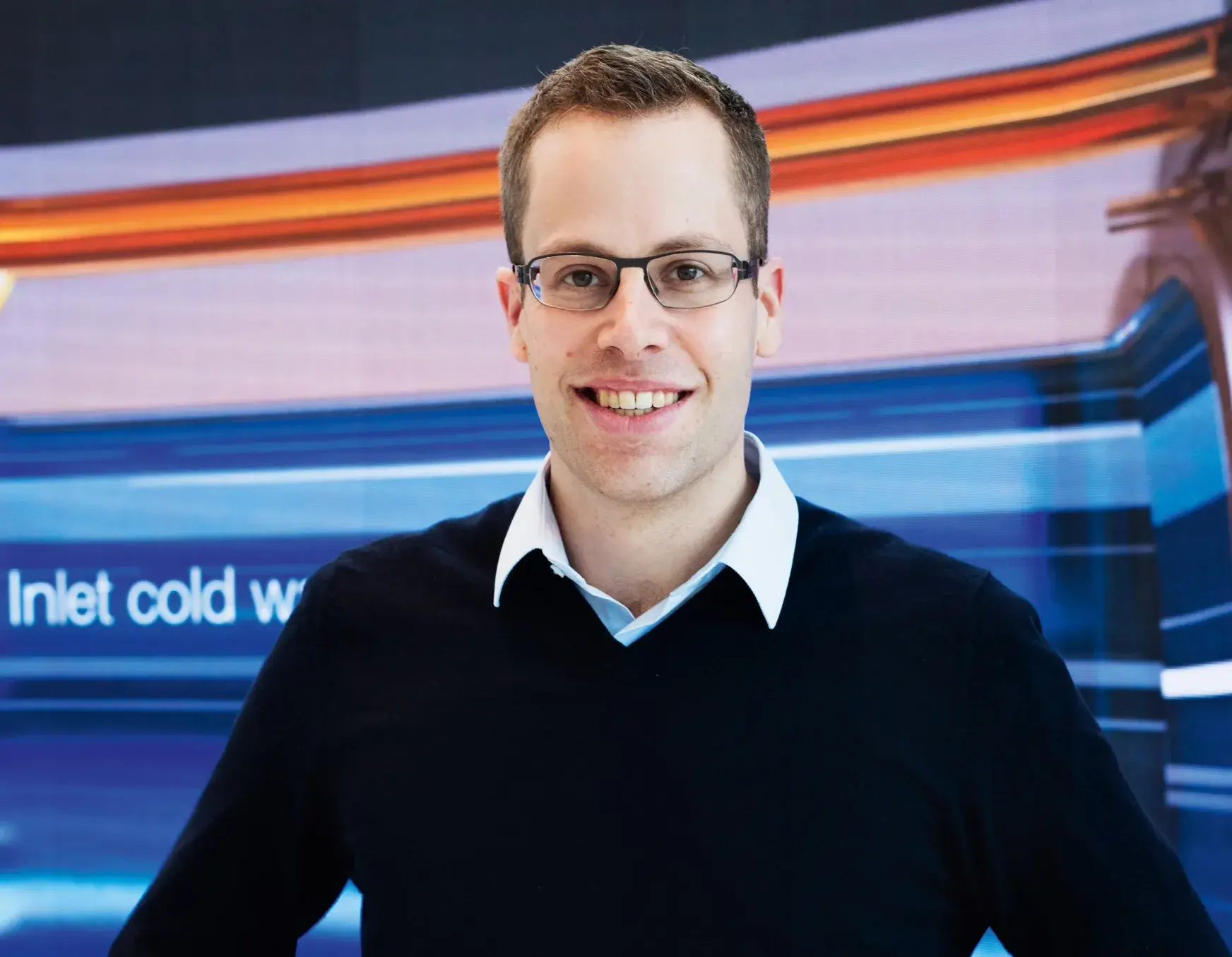
Dongguan is an important industrial city which lies north of Hong Kong. Its population, at 8.3 million, is approximately the same as Switzerland’s. It is the city Matthias Bleibler was drawn to after receiving his Master’s degree from the ZHAW School of Engineering.
Matthias Bleibler’s interest in China had been sparked. He was fascinated by how radically different everything was there. After his studies, he specifically applied for work in China and eventually accepted a job at Marti EPC Ltd. in Dongguan. The company manufactures belt conveyor systems for tunnelling.
Read more about Matthias Bleibler
European – what else?
Switzerland belongs to Europe historically, culturally and economically. It is a part of an enlightened Europe, a Europe of democracy, human rights and solidarity, a Europe with a welfare state system.
The history and institutions of Switzerland are inconceivable without Europe, and the future of our country is dependent upon Europe. Existential challenges affect Switzerland and Europe to the same extent and cannot be solved by either of them going it alone. We need supranational solutions to respond to questions regarding the employment market and migration in Europe, to solve problems regarding care systems in the health and social sectors, and to deal with issues regarding the ageing society, resources and mobility, or the extremely delicate question of social integration.
EU research conducted - despite difficult conditions
Over the last few years, the ZHAW has successfully submitted and won seven Horizon 2020 proposals. The aim is to continually increase this number over the coming years, despite the unstable political climate.
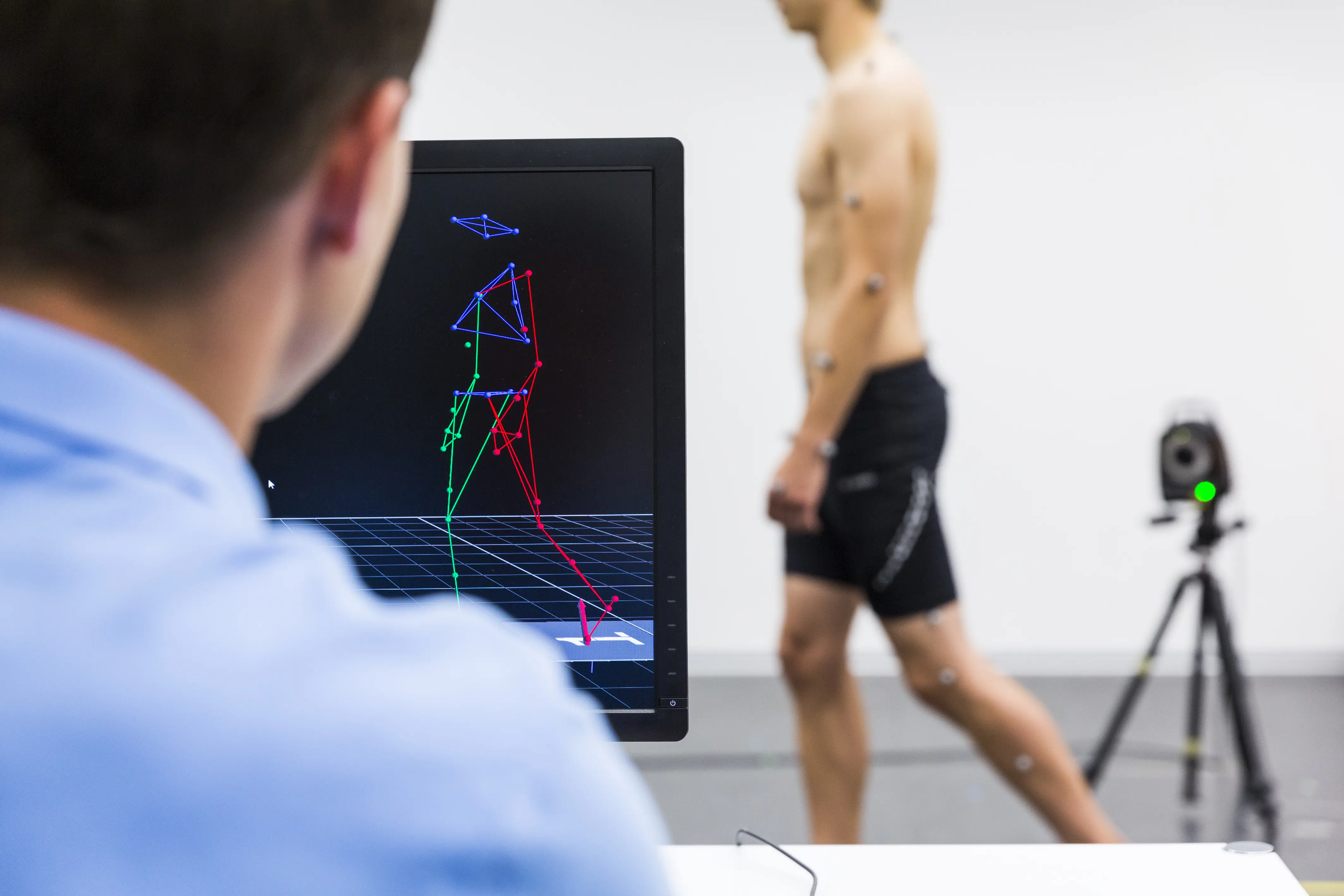
Soft smart materials can provide support for those with mobility impairment. Engineers, physiotherapists and those working in the area of human movement science at the ZHAW are working together with eight European partners in an interdisciplinary project entitled “XoSoft”. The aim of this project is to find a new innovative solution within the EU research programme “Horizon 2020”. The soft exoskeleton provides the appropriate level of support to aid the movement sequence being carried out.
Read more about our EU research projects
New business models for Europe
The Center for European Business & Affairs helps Swiss companies to gain a foothold in Europe. A good network is essential for this.

It’s been over a year since the Swiss National Bank discontinued the minimum exchange rate of 1.20 Swiss francs per euro, and the impact on Swiss exports is clearly evident. Last year, for example, orders in the machine, electrical engineering and metals industry nosedived across the branch by 14% and turnover dropped by 7%. Approximately one third of these companies slipped into the red in 2015 as a result, according to Swissmem, the branch association. For many companies, cost-cutting is the only way to survive. New business models for the European market are in great demand.
The ZHAW on the European stage
Education, as well as research and development, have to develop within the context of international exchange, and be oriented towards international standards.
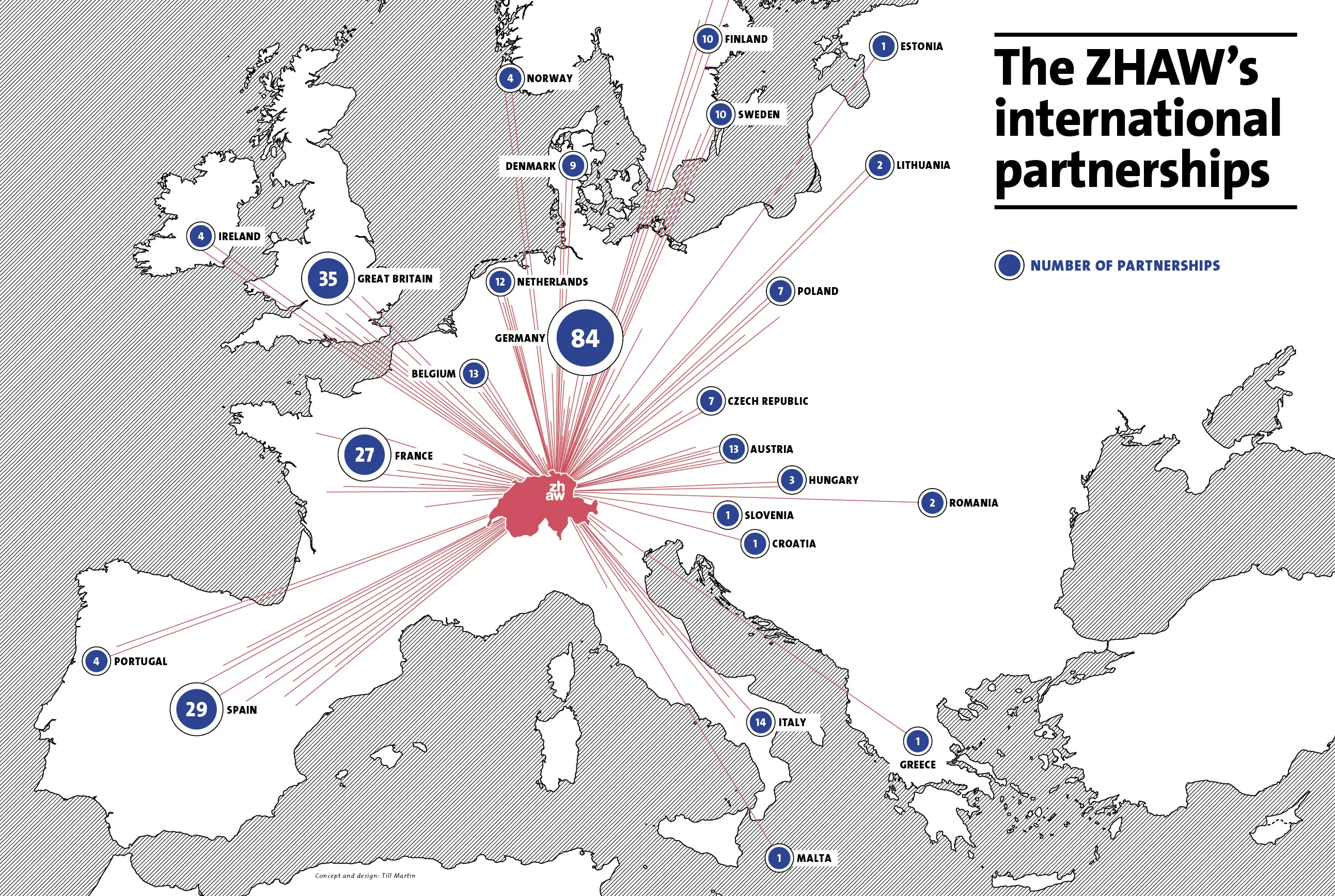
The ZHAW wants to actively participate in the further development of the European Higher Education and Research Area. The exchange is enriching in various ways, because students and employees are in contact with renowned research partners, gain access to new technologies, discover new fields and come to know and appreciate things foreign. Furthermore, Europe is Switzerland’s most important partner in business, research and innovation.
Crossing borders, broadening horizons
Student exchanges, European Culture Days, work shadowing - the ZHAW’s contact with European universities is diverse and inspiring. Students as well as lecturers can benefit from this.
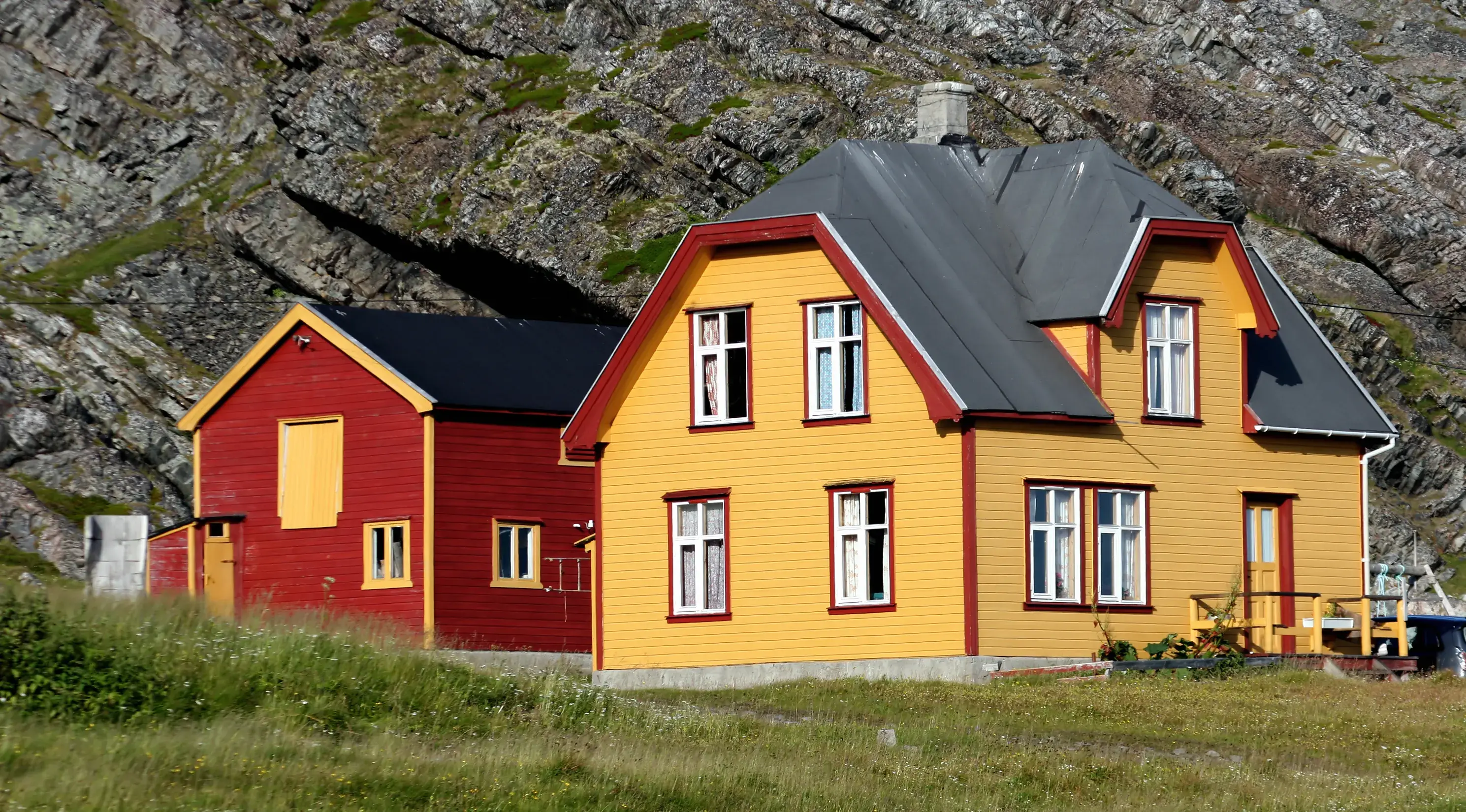
The pictures in Meret Aschwanden’s clinical placement report show colourful wooden houses, deep blue lakes and thick coniferous forests - and they make you want to visit Norway. But even though the nursing student had a large amount of free time to explore Scandinavian nature last autumn, this was not the main reason why she participated in the exchange.
“I wanted to broaden my professional horizons,” says Aschwanden, who is 24 years old and currently in her seventh semester. She spent three months in Trondheim, where she gained an insight into home-care services and the palliative care unit. She also attended lectures, together with Norwegian nursing students, for three weeks. She received credits for her time in Norway at her home university, the ZHAW.
Read more about the ZHAW’s contact with European universities